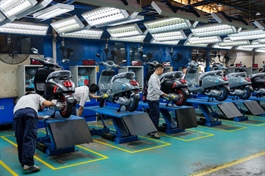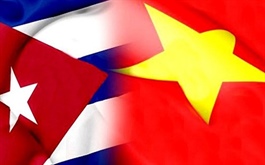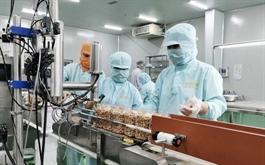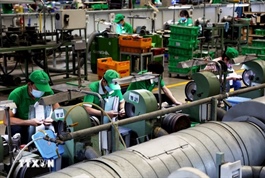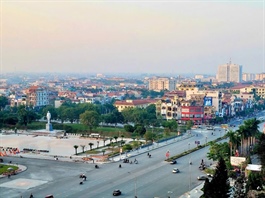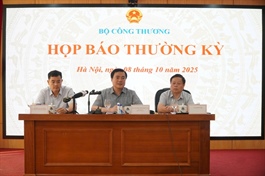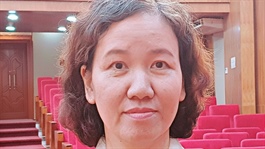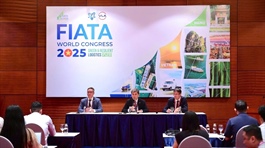Thai Nguyen expects boost in major foreign investment post merger
Thai Nguyen expects boost in major foreign investment post merger
Industrial and mineral advantages are expected to open up a new development space for large-scale investment in Thai Nguyen province following its merger with Bac Kan province.
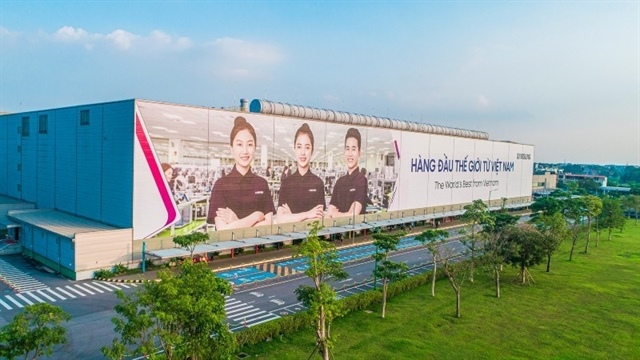
Thai Nguyen expects a boost in foreign investment post merger |
Thai Nguyen has been one of the bright spots for attracting foreign direct investment (FDI) in Vietnam, especially in the northern midlands and mountains. After the merger, the locality has continued to promote its potential to improve its position on the investment map.
In the first nine months of 2025, the province achieved impressive results in attracting investment, affirming its position as one of the leading localities in the region in terms of capital absorption capacity. This growth comes not only from new projects but also from the continued trust and expansion of production by existing investors.
In the first three quarters, the locality issued investment planning decisions and approved 80 projects, with total registered capital of VND29.07 trillion ($1.16 billion). In addition, the province approved for four new projects with VND10.69 trillion ($427.6 million) and adjusted capital for 26 existing projects, worth VND3.11 trillion ($124.4 million).
FDI is still a solid pillar for Thai Nguyen's economy. In the first nine months of 2025, the province registered new investment of $169.8 million. Trust among existing investors by additional capital injections, with 36 foreign-invested projects adding $192.4 million.
Creating opportunities for breakthroughs
Based on these results, Thai Nguyen is continuing to upgrade its strategy to attract FDI, prioritising high-tech industries, clean technology, digital transformation, renewable energy, deep processing, and modern services. In addition, the province has determined to develop green and sustainable industries and balance economic development with environmental protection.
The selection of investors is also now under stricter criteria, requiring financial capacity, modern technology, and long-term commitment to the locality. In addition, the province aims to strengthen the connection between foreign-invested enterprises (FIEs) and domestic enterprises through supply-demand connection programmes, support for technological innovation, and human resource training. This is an important step to spread value from FIEs to the entire local economy.
The province also clearly identifies capital inflow as an important driving force for sustainable socioeconomic development, so it has synchronously implemented preferential policies and effective support solutions. The province is focusing on promoting administrative procedure reform, shortening the time to approve investment dossiers, driving digital transformation in investment management, and establishing special working groups to remove difficulties for FIEs.
Local leaders maintain regular dialogue with enterprises, proactively encourage on-site investment, and expand cooperation with international organisations and foreign business associations.
Thai Nguyen also organises business trips for provincial delegations to key markets such as South Korea, Japan, the United States, and the EU to introduce its potential and strengths, and call for investment. In 2025, the locality is expected to attract about VND90 trillion ($3.6 billion) in non-budgetary investment capital, of which domestic enterprises will account for VND38.2 trillion ($1.52 billion) and foreign-invested capital at VND39.3 trillion ($1.57 billion), mainly focusing on investment in industrial parks and clusters.
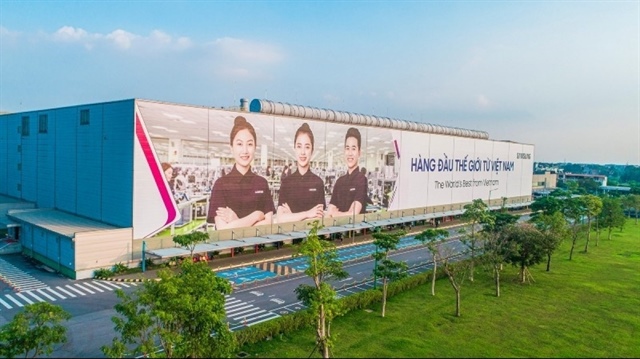
Yen Binh K-Town Pho Yen. Models such as serviced apartments for experts, high-class boarding houses for engineers, and small business premises for commerce are being built for foreign-invested enterprises and investors |
Thai Nguyen owns Nui Phao polymetallic mine, one of the largest tungsten reserves in the world. The mine is invested in and operated by Nui Phao Mineral Exploitation and Processing Co., Ltd. (under Masan High-Tech Materials), with a total initial investment of more than $500 million.
The project is located in Hung Son town, Ha Thuong commune, Tan Linh commune, and Phuc Linh commune, about 24 km from the Thai Nguyen city centre. The mining site is nearly 152 hectares, of which 90 ha was licensed for mining in 2010.
Nui Phao not only exploits tungsten but also processes accompanying minerals such as fluorspar, bismuth, copper, and gold, playing a strategic role in the global high-tech materials supply chain.
Meanwhile, the former Bac Kan province is also known as a land rich in minerals, with many rare metals such as lead, zinc, antimony, copper, and gold. The merger with Thai Nguyen opens up opportunities to connect the value chain of mining, processing, and minerals, thanks to more synchronous infrastructure, a highly skilled workforce, and the manufacturing capacity in Thai Nguyen.
“Bac Kan and Thai Nguyen have a long history, a common formation and development process (separated from the old Bac Thai province), a close geographical connection, and similarities in cultural traditions, customs, and practices. The merger of the two provinces is of special importance to expanding development space, unleash resources, and closely connect the dynamic industrial and urban centre of Thai Nguyen with the unique ecological and cultural potential of Bac Kan,” said Deputy Prime Minister Nguyen Chi Dung.
“Thai Nguyen needs to focus on driving forces for economic growth, environmental protection, high-tech industry, clean agriculture, green tourism, the digital economy, private economic development, and FDI attraction. In addition, the province needs to proactively propose and pilot mechanisms for private economic development and high-tech enterprises, and promote the development of green, smart, energy-saving industrial park models, circular production, and the use of renewable energy,” DPM Dung directed.
- 15:59 09/10/2025




